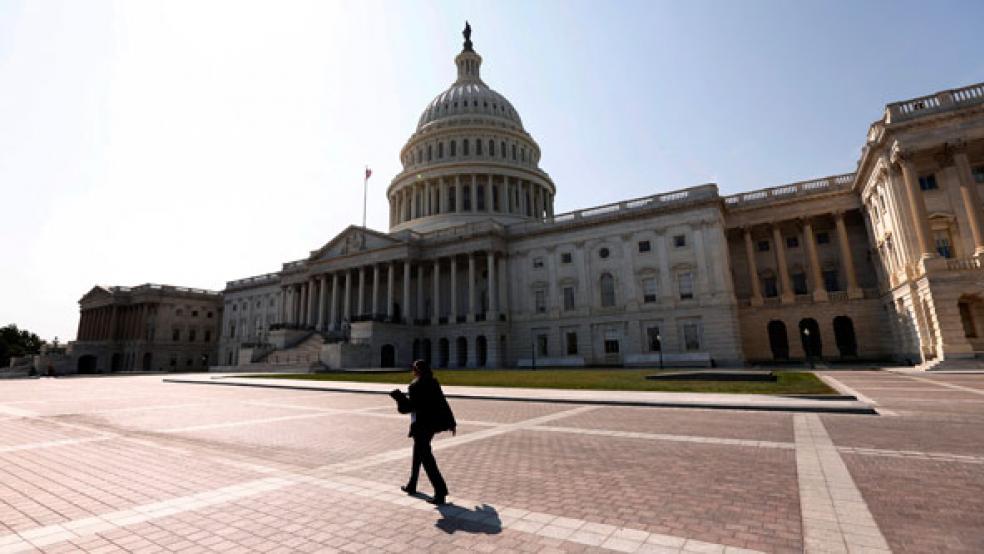Members of Congress trickled back into Washington on Monday after their two-week break, preparing for a session that will be comprised of about eight legislative days spread over two weeks before the House leaves town again for another nine-day recess. Shortly thereafter, the Senate will leave town for the week of Memorial Day.
If there was any doubt about whether the tone of partisan rancor that has dominated Congress for the majority of the current session would continue, Senate Majority Leader dispelled it just minutes into the day’s meeting of his chamber by renewing his verbal assault on the Koch brothers – billionaire industrialists whose donations to conservative causes fuel many groups attacking Democrats on fronts as varied as Obamacare, labor unions, and environmental regulations.
Related: Low Wage Jobs Continue to Drive the Recovery
Not to be outdone, Republicans rushed to the barricades to demand the resignation of Secretary of State John Kerry over his criticism of Israel’s treatment of its Arab minority.
So, yes. Congress is back, and on policy issues at least, it’s pretty much the same show we saw last time around. Lots of sound and fury signifying, if not nothing, then at least not a whole lot.
Many of the same issues that were being fought over when Congress left town earlier this month remain on the table now that lawmakers are back in session. The minimum wage increase being pushed by President Obama, which would up the federally mandated minimum hourly wage from $7.25 to $10.10 over three years appears to be the Senate’s first order of business.
On Monday, Reid filed for cloture on a bill to implement the President’s request, which means, in the convoluted world of the Senate, that there will be a vote sometime later this week on whether to begin debating a bill proposing the increase.
Related: Boehner Has Backed Himself into a Corner on Immigration
It is currently unclear whether the effort to renew an extension of federal unemployment benefits to the long-term jobless will continue to have support over the coming weeks. A bill passed by the Senate appears to be going nowhere in the House, and House leadership has not announced its support of any competing legislation that could go to a conference committee with the Senate bill.
House Democrats have vowed to pressure Rep. Boehner to consider a bipartisan Senate immigration reform bill, but the Speaker’s position on the issue remains unclear. For his part, Boehner has publicly indicated that he supports some type of immigration reform, and has been equally public about his frustration with other Republicans who view the effort as too politically costly. But it remains unlikely that Boehner’s dissatisfaction with his own conference will translate into an arrangement with Democrats
What is clear is that the House of Representatives will continue making largely symbolic efforts to embarrass the Obama administration or to create talking points for candidates in the 2016 election.
Related: Tea Party Backers, with Hidden Agendas, Aim at ‘RINOs’
A memo sent to House members by Majority Leader Eric Cantor (R-VA) promises votes on a resolution to hold former Internal Revenue Service Director of Exempt Organizations Lois G. Lerner in contempt of Congress for her refusal to testify about how the IRS treated applications for tax-exempt status from politically active organizations.
There does appear to be at least the possibility of limited progress on presidential nominations. The Senate Democratic majority’s decision to invoke the so-called “nuclear option” last year leaves room for the Senate to fill some empty positions with President Obama’s nominees, at bare minimum. On Tuesday, the Senate is scheduled to vote on six such appointees.
Top Reads from The Fiscal Times
- FCC Move Seen as Disaster for Online Start-Ups
- Little Credit Union Uncovers Massive Tax Fraud
- The Greening of the Pentagon Takes a Big Step Forward





